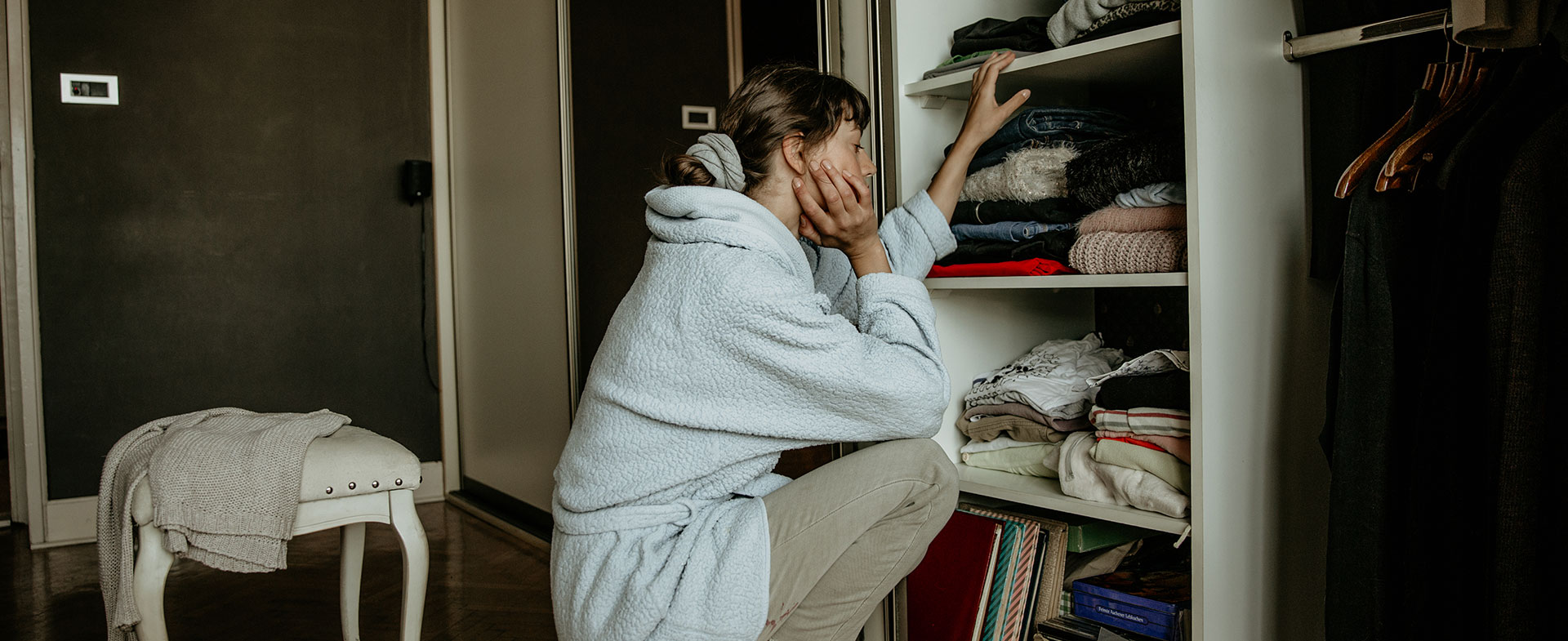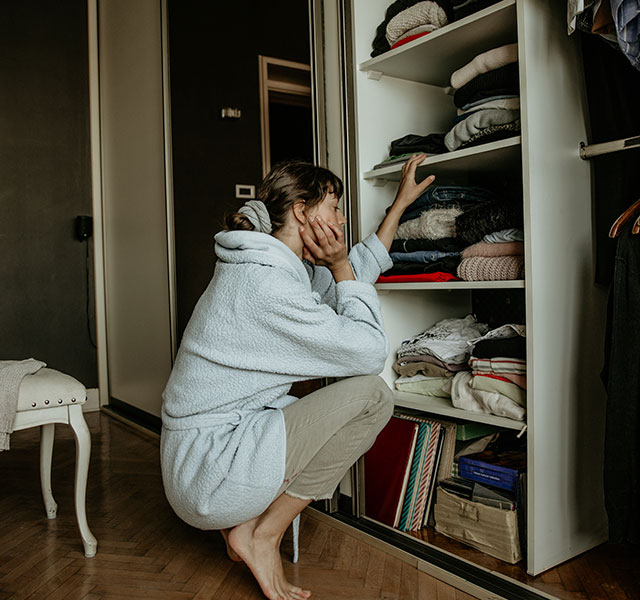Up until two years ago, many of us sacrificed comfort for fashion on the regular: wearing heels for eight hours a day, squeezing into hard, stiff jeans, only finding reprieve at the end of the day when we rushed home to throw on sweats. Then, of course, the pandemic happened. Sweats and sneakers became a mainstay. And now, as we’re resuming some semblance of normal daily routines, one thing that’s not changing is our desire to wear comfy clothes.
Relaxed, looser styles have taken priority over tight, constricting ones. Matching knit sets and drawstring jumpsuits have become popular, elevating the look—while maintaining the comfort of—sweatpants and sweatshirts. And this style of dressing isn’t just more comfortable, but it’s also healthier. Yep, you read that right: Certain styles that were essential pieces in our wardrobes before the pandemic can lead to legitimate health problems. Here, eight unhealthy fashion trends you can hang up for good.
- Tight jeans. Second-skin, skinny jeans can restrict circulation, decrease blood flow to your lower extremities, and compress critical nerves that run along the sides of your thighs, says Rena Daiza, M.D., a family practitioner at Henry Ford Health. This leads to a localized numbness and tingling called meralgia paresthetica. It can also give you shooting pains down your legs. Tight jeans (including high-waisted mom jeans that are too tight around the stomach) can also interfere with digestion—think tummy trouble, heartburn and gas. And if that’s not enough, tight jeans could lead to infertility in men.
- Shapewear. Second-skin undergarments like Spanx and Skims might sculpt your body into a perfect hourglass figure, but they come with numerous health concerns. (And who says an hourglass figure is the only figure to have?!) Because they shrink your stomach temporarily—and compress your internal organs against your diaphragm—they decrease your ability to take a full breath. When you can’t breathe deeply, your body and brain miss out on much-needed oxygen. “You might feel dizzy, light-headed, or pass out,” Dr. Daiza says.
- Tight neckties. Wearing tight, collared shirts or ties can reduce circulation to the brain and lead syncope, or fainting due to lack of blood to the brain, Dr. Daiza says. Reduced circulation to the brain can also increase pressure in the eyes. Over time, this increases your risk of developing eye problems like blurred vision and glaucoma. Tight neckties can also be a literal pain in the neck: They decrease range of motion, causing strain in the shoulders, neck and back. A rule of thumb? Make sure you can laugh, sneeze and cough without feeling like you’re choking.
- High heels. Stilettos and pointy toe shoes force your torso to tilt forward while the rest of your body leans back to compensate. Wear them every day and Dr. Daiza says you can get lower back pain and fatigue of the calf muscles, leading to cramping and pain. The irregular distribution of weight also alters your balance so you end up walking more on the balls of your feet, which can cause foot and toe cramps—not to mention bunions, hammertoes, pump bumps (i.e., lumps or bulges on the back of your heels), and neuroma, or inflammation of the nerve tissue between your toes.
- Ballet flats and flip flops. Just because you’re wearing flat shoes doesn’t mean you’re doing yourself a favor, though. Wear unsupportive ballet flats or flip flops daily and you could get inflamed tissue on the bottom of your feet, known as plantar fasciitis, Dr. Daiza says. (It’s quite painful!) The flimsy nature of these shoes can also force you to clench your toes to keep them on, resulting in foot fatigue, sore calf muscles, and strain on the tendons of your feet. And not least of all: flip flops expose your feet to the elements like dirt, germs and sharp objects. Your best bet? Save them for the beach and try wearing shoes with a bit of a sole instead.
- Lace underwear. Certain materials—like non-breathable lace—can trap moisture and lead to vaginal and urinary tract infections. Tight underwear also makes it easy for bacteria to travel from the anus to the vaginal tract, causing infection, Dr. Daiza says. What’s worse, constant friction against the fabric can cause skin irritation and small tears in the delicate skin around the genitals. Stick to looser, cotton underwear as often as you can.
- Oversized bags. As you get back to your day-to-day routine—school runs, office, grocery shopping, etc.—you might be picking up your giant handbags again. After all, you can fit your whole life in there! But heavy handbags and briefcases throw your posture off balance and create lower back and shoulder pain. Ditch the heavy bags in favor of lighter cargo (no more than 10% of your body weight) or opt for a messenger bag that fits diagonally across your body. Better yet, wear a backpack over both shoulders.
- Underwire bras. When used regularly, the tightness and restrictiveness of underwire bras can potentially lead to pressure cysts, abrasions, infections and contact dermatitis, Dr. Daiza says. If the pandemic hasn’t caused you to already, switch it up with more comfortable styles—especially while working out or participating in outdoor activities, when friction and sweat can more easily cause rashes.
All of this said, let’s be realistic: there might come a day when these items will make it back into our rotation. If and when that day comes, that’s okay. The key, Dr. Daiza says, is to wear these styles in moderation, so we don’t sacrifice our health in the process.
Subscribe to receive a weekly email of our latest articles.
To find a doctor at Henry Ford, visit henryford.com or call 1-800-436-7936.
Rena Daiza, M.D., is a family medicine doctor who sees patients at Henry Ford Health Medical Center in Bloomfield Township.



